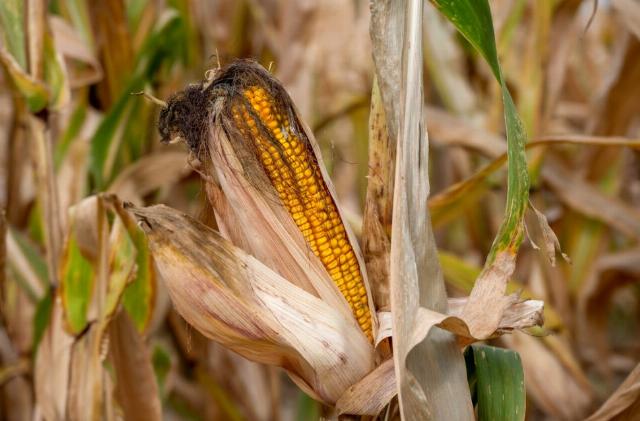
As the Christian world celebrates Resurrection Sunday, the Northern Hemisphere is springing with new life. Buds on trees are visible, and baby animals are moving around for the first time. It is a season of rejuvenation. These sights are pleasing reminders that physical death is insignificant next to the prospect of everlasting spiritual life.
Farmers are counting down the days until the final frost and the opportunity to plant new crops in warming soil. Growing food teaches that, as in our individual lives, timing is often critical. If you plant corn too early, seedlings will die; if you plant too late, an early autumn frost can kill the crop. Sweet corn needs both a lot of sun and sufficient moisture. Heavy rains can drown young plants before they have time to strengthen their roots. When stalks are growing tall in harsh summer heat, though, a good rain can make the difference between a bountiful harvest and a desiccated field. A gentle breeze is helpful for pollination; strong winds, however, might break stalks in half. Seeds should be sown close to each other but never too close — or you’ll end up with tiny ears! Sweet corn plants grow well together, but they also need their space to produce delicious, milky kernels.
Think about those lessons in the context of human life. Sometimes we need temperate weather to survive; at other times, we need intense heat, wind, or rain to grow as individuals. We must learn to endure harsh conditions. Sometimes we must even seek out dangerous storms. If a young child is made to suffer too early or for too long, the damage can cut short an otherwise healthy life. If a young adult suffers too little, however, then he may never grow strong enough or wise enough to truly live. To find joy, we must experience disappointment. To be whole, we need other people. To be our best, though, we need the space to become the people we are meant to be. As on a farm, sometimes violent storms weaken us; sometimes they make us remarkably resilient. Such is life. Timing is everything.
Each ear of corn is created through beautiful complexity. Every single kernel is attached to a silk strand that protrudes from the top of every single ear. For germination to occur, pollen from the plant’s tassel must land on each silk thread, transfer genetic material down the length of a tunnel inside the thin strand, and reach the individual kernel. Every silk strand must successfully go through this process, or there will be gaps on the ear. Because every corn tassel has thousands of pollen-bearing structures that produce millions of pollen grains, a single competing corn plant from a neighbor’s field can release enough of the wrong pollen into the wind to contaminate entire acres. Likewise, if beetles or other pests feed at the silk, individual kernels will never get properly fertilized. It’s a magical dance affected by temperature, sunlight, drought, thunderstorms, soil quality, fungal disease, insects, and roving animals. With so many variables in play, looking at a beautiful ear of sweet corn is nothing short of amazing.
Now consider what it takes to produce a beautiful life. From the day we’re conceived, we have our own kind of silk strands collecting information from the outside world. To become fully functioning human beings without any debilitating gaps in our souls, we must somehow distinguish what is harmful from what is healthy. If we’re lucky, we have parents and loved ones to guide us along our journey — especially when we are too immature to choose wisely. Even the lucky ones, though, are constantly bombarded by contaminants that threaten their existence. For every field filled with virtue, there is a neighboring field filled with vice and sin. It is difficult to attach ourselves to what is important when both good and bad pollens blow in the same winds. And when we do choose correctly and live well, there is still no shortage of pests or parasites working to weaken or destroy us. Roving animals surround us with ill intent. Rejecting temptation and battling evil is not easy. Perfection is not possible because we are all sinners. Building a beautiful and virtuous life nonetheless is nothing short of amazing.
Unlike the life of a corn plant, these physical lives of ours are just the beginning. As is written in John 17:3, “And this is everlasting life, that they may know You, the only true God, namely Jesus Christ whom You have sent.” Jesus tells us that everlasting life in Heaven begins with our salvation. Likewise, our salvation begins by “knowing” God and seeking a personal relationship with Christ. Our physical lives are just tiny seedlings. We endure the harsh weather and unexpected turmoil of this world as we grow. We do not live to die. We die so that God can sow and harvest redeemed souls.
The trials we experience today are blessings because they allow us to see how barren the world is when humans forsake God. Those who have turned their backs on Him are weak and fragile crops. Too many humans alive right now are missing kernels from their souls. They’re blighted by sin, parched from refusing the Holy Spirit’s life-giving water, and breaking in the softest winds because they do not believe. Believers, on the other hand, are being tested and growing stronger. Heat, drought, wind, and storms can destroy a field of sweet corn. Those same conditions can also yield an abundant crop. Look around today and you will see two farms: one that is producing inedible rot and another that is producing vibrant life. It is not difficult to understand which one will provide God’s harvest.
If the world feels more daunting today than just a decade ago, do not despair. Just as a farmer must rotate different crops in the same field to make sure nitrogen, phosphorus, and minerals make their way back into the soil, human society must rotate through cycles of abundance and collapse while God separates the wheat from the chaff.
Difficult times allow both crops and people to bloom in unexpected ways. There is a kind of fungus that infects corn kernels and turns them into bulbous, purplish monstrosities. American farmers call it “corn smut.” Chefs in fine dining restaurants call it “huitlacoche,” and it is considered a delicacy. Sometimes adversity creates surprising outcomes.
If you’ve seen enough harvests, another lesson stands out. Even spectacular growing seasons produce failed plants, while awful growing seasons can leave you with a small but beautiful harvest. Sometimes a wonderfully ripe ear of sweet corn grows in the middle of several rows filled with small, dried-out plants. What conditions allowed for such unexpected growth in the middle of nothingness? That’s what every good farmer tries to find out.
When we spot another human being living a virtuous and meaningful life in the middle of a spiritually barren world, we owe it to ourselves to understand such growth, too. Following another’s good example tends to spread like seeds blowing through an open field. Eventually, dead and forgotten lands become teeming with life.
This Easter, do not worry about what we have lost. Look at Jesus Christ. Contemplate the significance of His resurrection. From His example, we have so much to learn. Following in His footsteps, we have everlasting life to gain.
<img alt="
Image via Pexels.
” captext=”Pexels” src=”https://conservativenewsbriefing.com/wp-content/uploads/2024/03/the-season-of-life.jpg”>
Image via Pexels.






